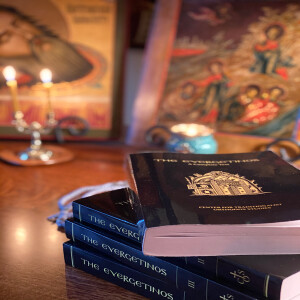
- Podcast Features
-
Monetization
-
Ads Marketplace
Join Ads Marketplace to earn through podcast sponsorships.
-
PodAds
Manage your ads with dynamic ad insertion capability.
-
Apple Podcasts Subscriptions Integration
Monetize with Apple Podcasts Subscriptions via Podbean.
-
Live Streaming
Earn rewards and recurring income from Fan Club membership.
-
Ads Marketplace
- Podbean App
-
Help and Support
-
Help Center
Get the answers and support you need.
-
Podbean Academy
Resources and guides to launch, grow, and monetize podcast.
-
Podbean Blog
Stay updated with the latest podcasting tips and trends.
-
What’s New
Check out our newest and recently released features!
-
Podcasting Smarter
Podcast interviews, best practices, and helpful tips.
-
Help Center
-
Popular Topics
-
How to Start a Podcast
The step-by-step guide to start your own podcast.
-
How to Start a Live Podcast
Create the best live podcast and engage your audience.
-
How to Monetize a Podcast
Tips on making the decision to monetize your podcast.
-
How to Promote Your Podcast
The best ways to get more eyes and ears on your podcast.
-
Podcast Advertising 101
Everything you need to know about podcast advertising.
-
Mobile Podcast Recording Guide
The ultimate guide to recording a podcast on your phone.
-
How to Use Group Recording
Steps to set up and use group recording in the Podbean app.
-
How to Start a Podcast
-
Podcasting
- Podcast Features
-
Monetization
-
Ads Marketplace
Join Ads Marketplace to earn through podcast sponsorships.
-
PodAds
Manage your ads with dynamic ad insertion capability.
-
Apple Podcasts Subscriptions Integration
Monetize with Apple Podcasts Subscriptions via Podbean.
-
Live Streaming
Earn rewards and recurring income from Fan Club membership.
-
Ads Marketplace
- Podbean App
- Advertisers
- Enterprise
- Pricing
-
Resources
-
Help and Support
-
Help Center
Get the answers and support you need.
-
Podbean Academy
Resources and guides to launch, grow, and monetize podcast.
-
Podbean Blog
Stay updated with the latest podcasting tips and trends.
-
What’s New
Check out our newest and recently released features!
-
Podcasting Smarter
Podcast interviews, best practices, and helpful tips.
-
Help Center
-
Popular Topics
-
How to Start a Podcast
The step-by-step guide to start your own podcast.
-
How to Start a Live Podcast
Create the best live podcast and engage your audience.
-
How to Monetize a Podcast
Tips on making the decision to monetize your podcast.
-
How to Promote Your Podcast
The best ways to get more eyes and ears on your podcast.
-
Podcast Advertising 101
Everything you need to know about podcast advertising.
-
Mobile Podcast Recording Guide
The ultimate guide to recording a podcast on your phone.
-
How to Use Group Recording
Steps to set up and use group recording in the Podbean app.
-
How to Start a Podcast
-
Help and Support
- Discover

This evening we concluded Hypothesis 29. We heard from one father after another of the importance of having a spirit of gratitude in our lives. We are to enter into the spiritual battle, expecting affliction, temptation and hardship. Furthermore, we are to see these things as coming to us through the providence of God.
Is it not this that we are often tempted to reject? We question: “Does God really ask this of us? Is he truly present to us or has he abandon us by allowing us to experience such great crosses in our lives?” The resounding answer to all these questions from the fathers is that God permeates these crosses, knows how they will they will affect and afflict us and how his grace will also perfect the virtue within us if we hope in Him. We often fail to see how deeply the “prosperity” gospel has permeated our minds and our hearts. So often we think faith in God should bring us certain blessings in this world. Even if this is not consciously on our minds, it is often what we desire; that God would bless our lives, our work and our relationships. It is tantamount to what Karl Barth called “practical atheism.” We believe in our minds, but in our daily actions towards others, and in our unwillingness to embrace our cross, we show that we lack the faith and the resolve of the Saints.
---
Text of chat during the group:
More Episodes
 2026-02-10
2026-02-10
 291
291
 2026-02-10
2026-02-10
 264
264
 2026-01-31
2026-01-31
 346
346
 2026-01-22
2026-01-22
 370
370
 2026-01-15
2026-01-15
 379
379
 2026-01-08
2026-01-08
 393
393
 2026-01-01
2026-01-01
 439
439
 2025-12-23
2025-12-23
 591
591
 2025-12-17
2025-12-17
 525
525
 2025-12-10
2025-12-10
 456
456
Create your
podcast in
minutes
- Full-featured podcast site
- Unlimited storage and bandwidth
- Comprehensive podcast stats
- Distribute to Apple Podcasts, Spotify, and more
- Make money with your podcast
It is Free
- Privacy Policy
- Cookie Policy
- Terms of Use
- Consent Preferences
- Copyright © 2015-2026 Podbean.com


